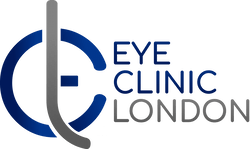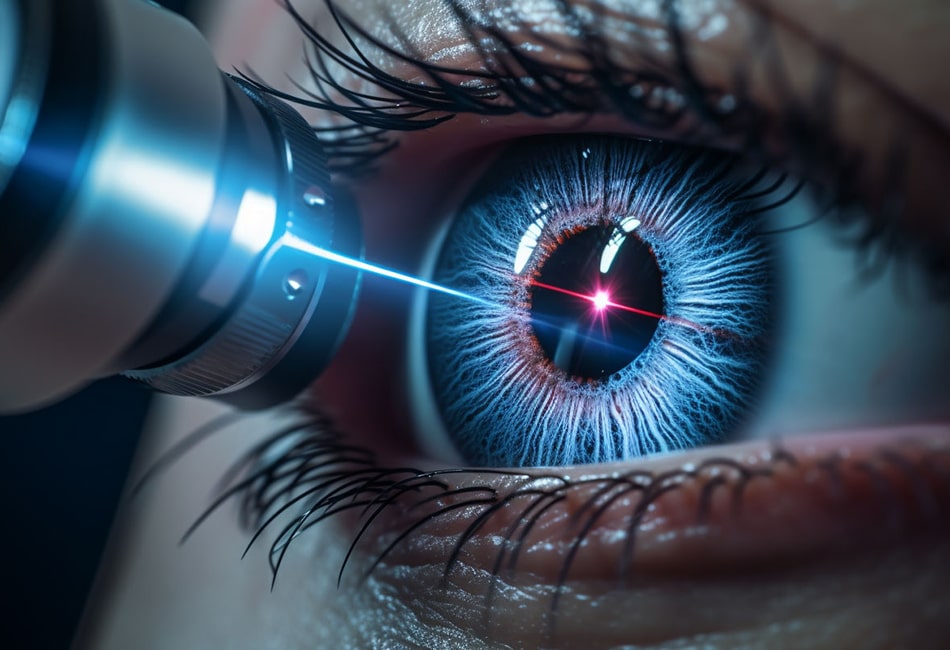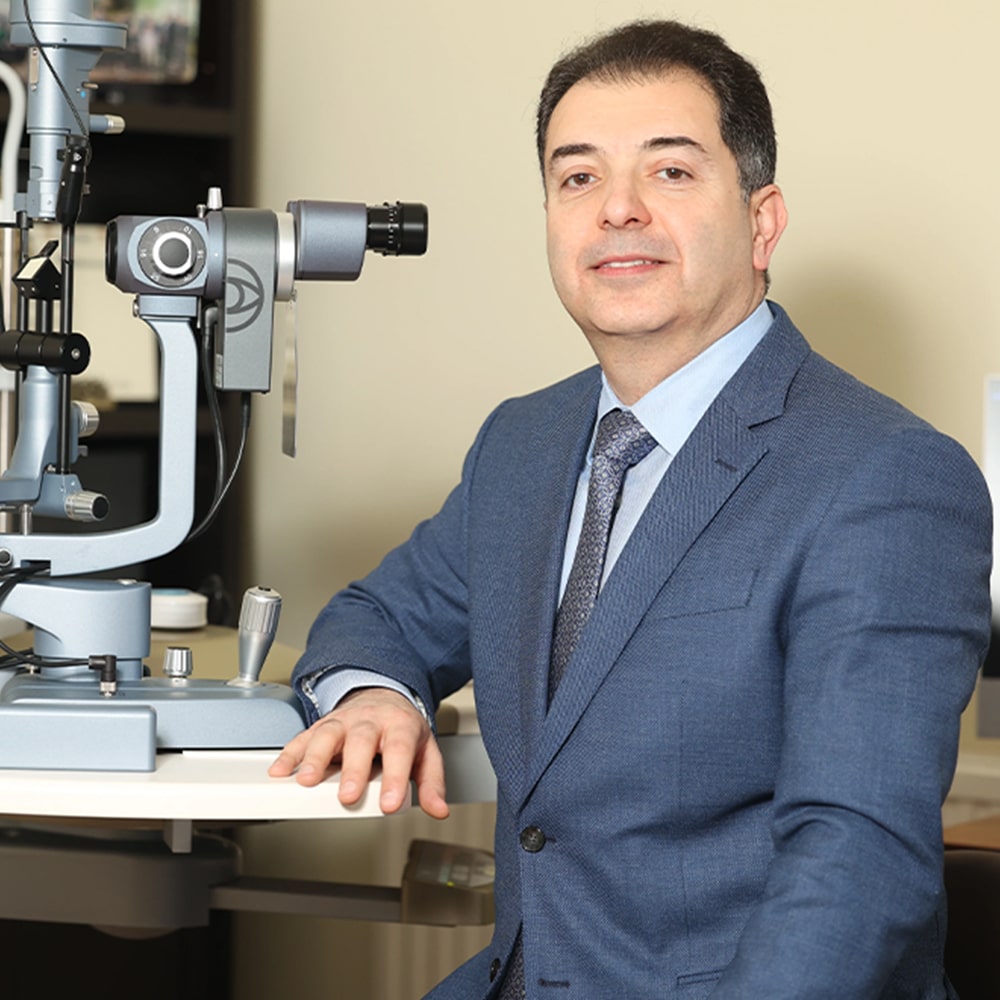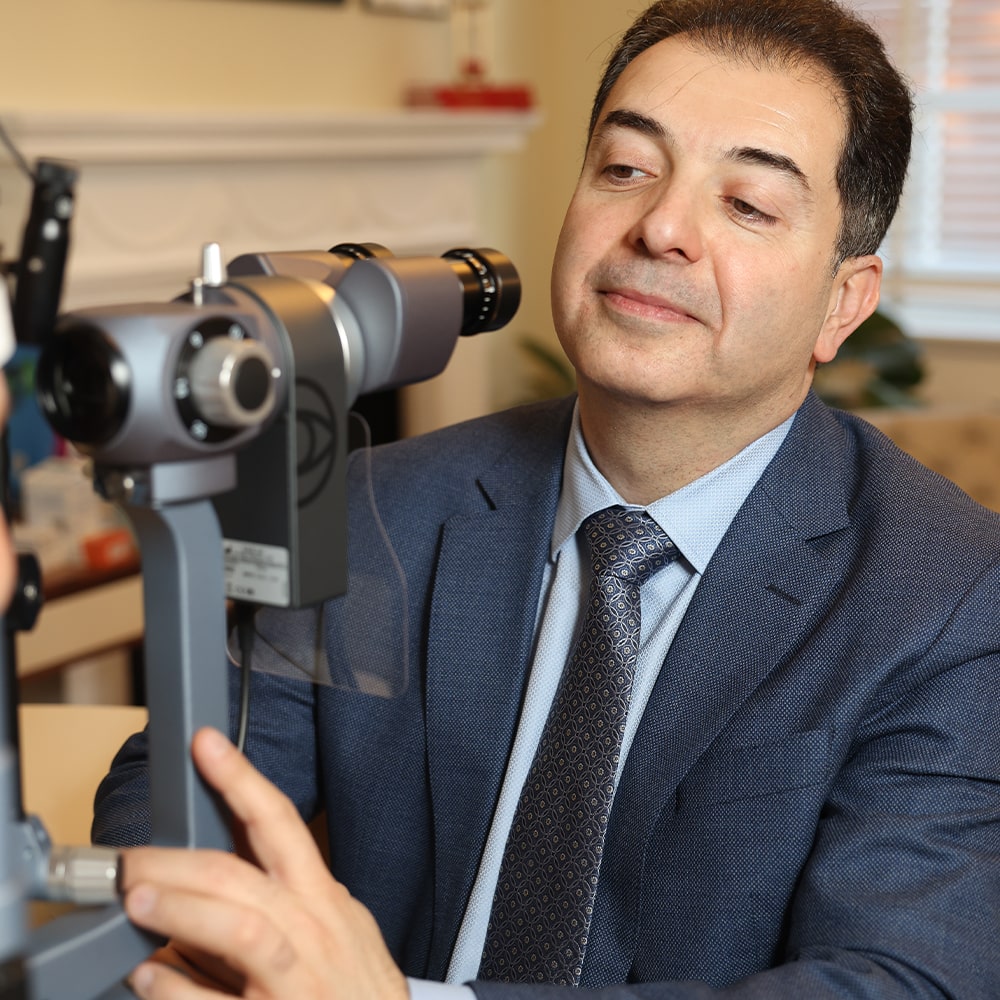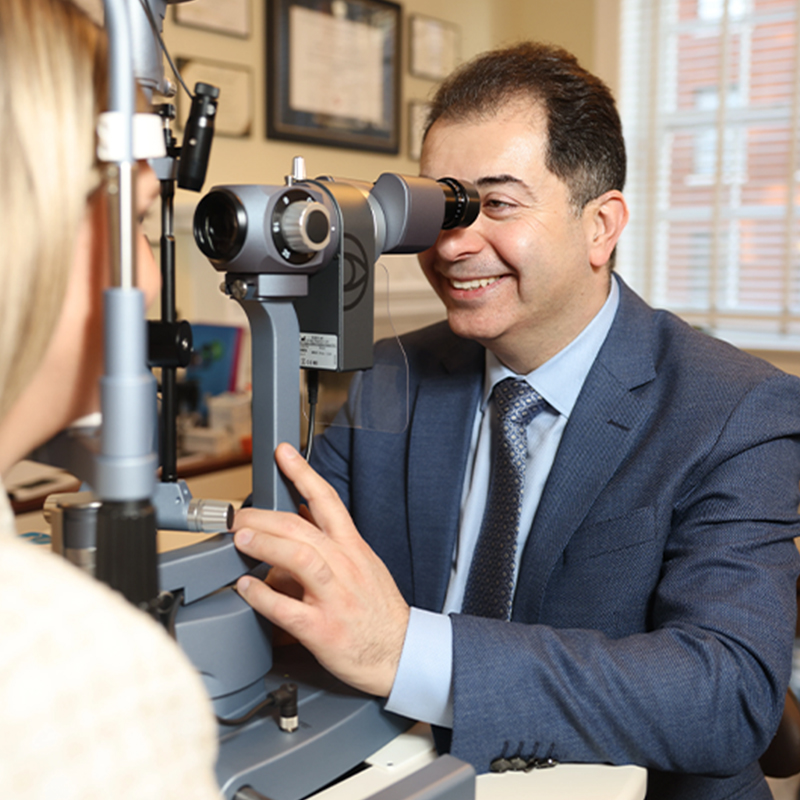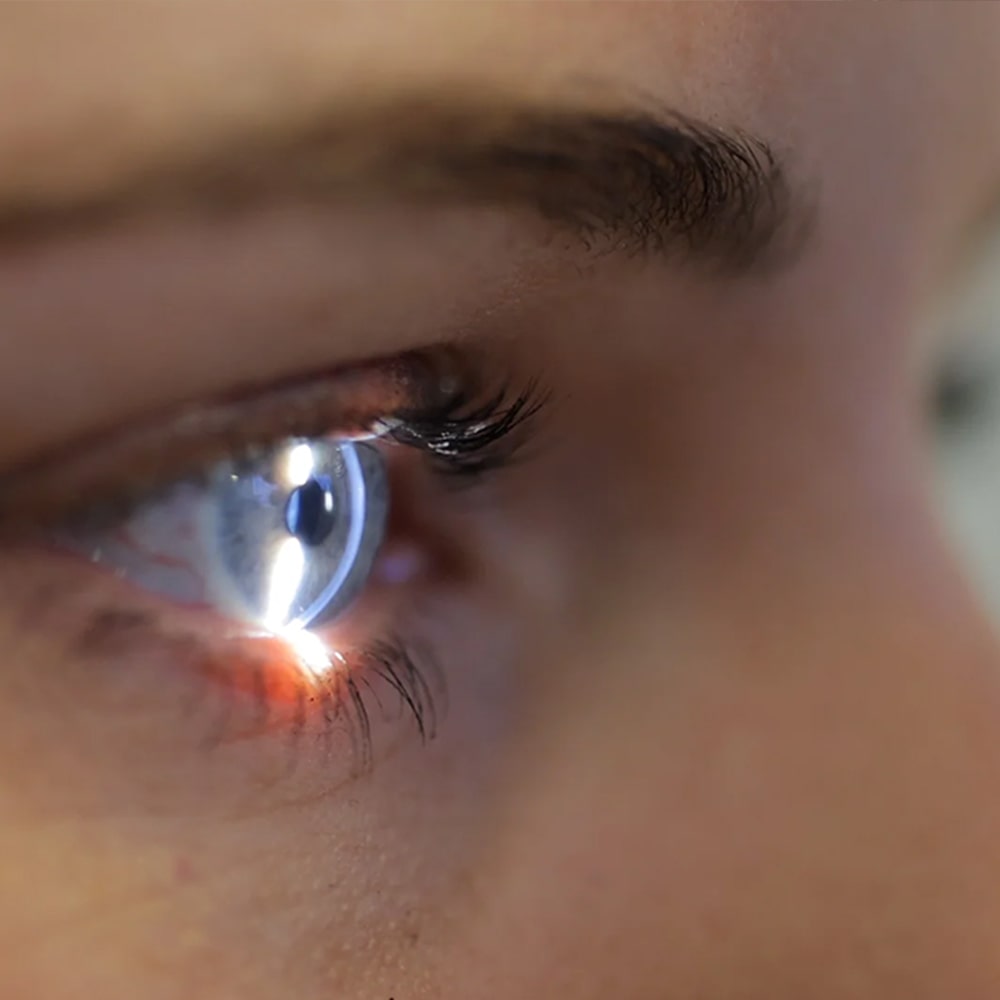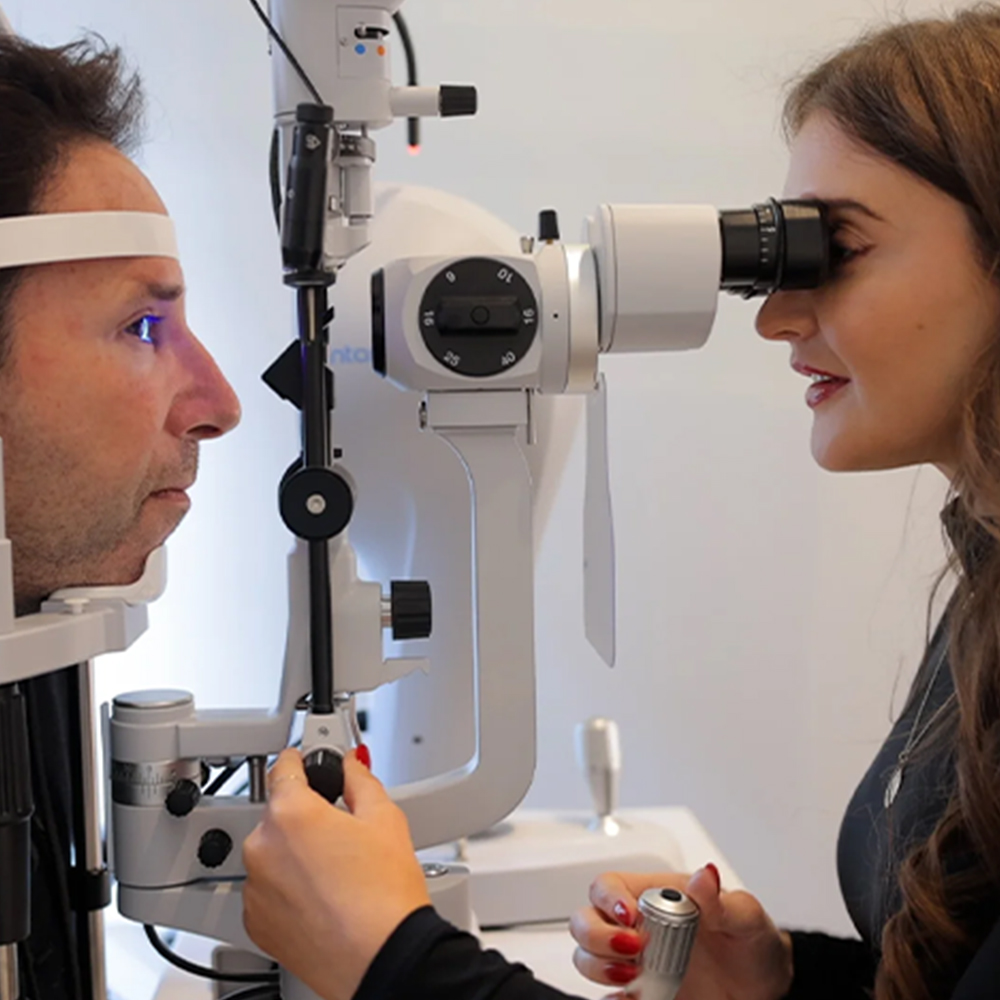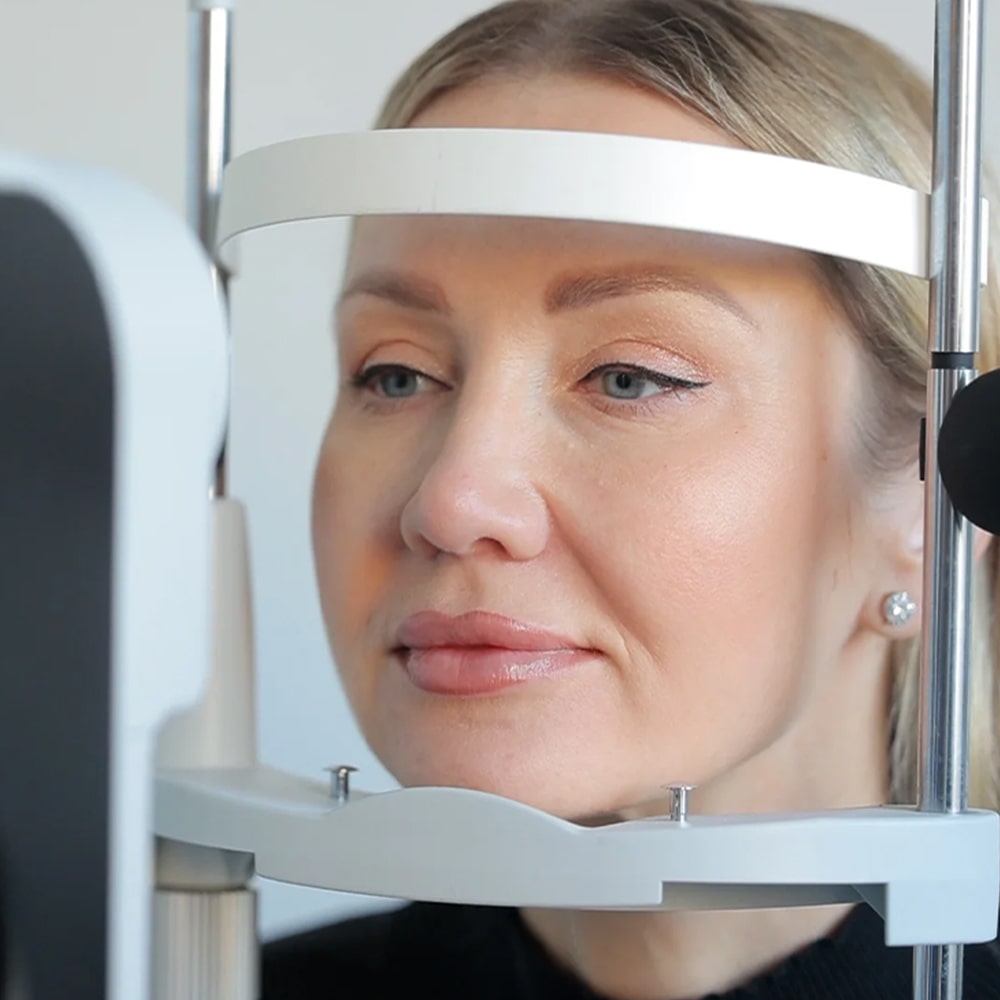LASIK Eye Surgery in London
If you rely on glasses every day, you may already be familiar with how restrictive they can feel. From constantly slipping down your nose to fogging up during exercise or everyday activities, glasses often become an ongoing inconvenience rather than a practical solution. Contact lenses can bring their own challenges too, with dryness, irritation, and daily maintenance making them uncomfortable for many people.
For those looking to reduce or eliminate their dependence on glasses or contact lenses, LASIK eye surgery offers a long-term vision correction option. Using advanced laser technology, LASIK reshapes the cornea with a high degree of precision, helping light focus correctly on the retina and improving visual clarity. For suitable patients, this can result in sharper, more reliable vision with less day-to-day hassle.
At Eye Clinic London, LASIK eye surgery is performed by experienced consultant eye surgeons using advanced laser systems, following a detailed assessment to confirm suitability and plan treatment around your eyes and prescription. Booking a consultation allows you to discuss your options, understand whether LASIK is right for you, and gain a clear picture of the results you can realistically expect. For many patients, it is the first step towards greater visual comfort, convenience, and freedom.
